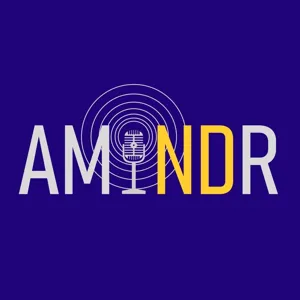You have just entered the magical world of Alzheimer’s literature. You are about to experience 8 papers that do their best to better understand the changes in synaptic transmission in Alzheimer’s disease. Where did we find such curious abstracts you ask? It just so happens that these were all papers published in November of 2021. Ready to go? Close your eyes and let Anusha be your guide through this journey of curiosity.
Sections in this episode:
Synaptic Changes in AD Mouse Models (2.27)
AD-related changes to Lipid Regulation (11.25)
--------------------------------------------------------------
To find the numbered bibliography with all the papers covered in this episode, click here, or use the link below:
https://drive.google.com/file/d/1TlPT5trrzOvxmuwdkZ_f33fE3Ii1lVZh/view?usp=sharing
To access the folder with all the bibliographies for 2021 papers so far, follow this link (it will be updated as we publish episodes and process bibliographies), or click the following link below:
https://drive.google.com/drive/folders/1N1zx_itPkCDNYE1yFGZzQxDDR-NiRx3p?usp=sharing
You can also join our mailing list to receive a newsletter by filling this form.
--------------------------------------------------------------
Follow-up on social media for more updates!
Facebook: AMiNDR
Twitter: @AMiNDR_podcast
Instagram: @AMiNDR.podcast
Youtube: AMiNDR Podcast
LinkedIn: AMiNDR Podcast
Email: amindrpodcast@gmail.com
--------------------------------------------------------------
Please help us by spreading the word about AMiNDR to your friends, colleagues, and networks! Another way you can help us reach more listeners who would benefit from the show is by leaving us a review on Apple Podcasts or wherever you listen to podcasts. It helps us a lot and we thank you in advance for leaving a review!
Our team of volunteers works tirelessly each month to bring you every episode of AMiNDR. This episode was scripted, hosted and edited byAnusha Kamesh, and reviewed by Christy Yu and Ellen Koch. The bibliography was generated by Lara Onbasi and the wordcloud was created by Sarah Louadi (www.wordart.com).
Big thanks to the sorting team for taking on the enormous task of sorting all of the Alzheimer’s Disease papers into episodes each month. For November 2021, the sorters were Jacques Ferreira, Christy Yu, Kate Van Pelt, Kira Tosefsky, Dana Clausen, Nicole Corso, Eden Dubchak, Ben Cornish, Ellen Koch, Elyn Rowe, and Naila Kuhlmann
Also, props to our management team, which includes Sarah Louadi, Ellen Koch, Naila Kuhlmann, Elyn Rowe, Anusha Kamesh, Jacques Ferreira for keeping everything running smoothly.
Our music is from "Journey of a Neurotransmitter" by musician and fellow neuroscientist Anusha Kamesh; you can find the original piece and her other music on soundcloud under Anusha Kamesh or on her YouTube channel, AKMusic.
https://www.youtube.com/channel/UCMH7chrAdtCUZuGia16FR4w
--------------------------------------------------------------
If you are interested in joining the team, send us your CV by email. We are specifically looking for help with sorting abstracts by topic, abstract summaries and hosting, audio editing, creating bibliographies, and outreach/marketing. However, if you are interested in helping in other ways, don't hesitate to apply anyways.
--------------------------------------------------------------
*About AMiNDR: *
Learn more about this project and the team behind it by listening to our first episode: "Welcome to AMiNDR!"







